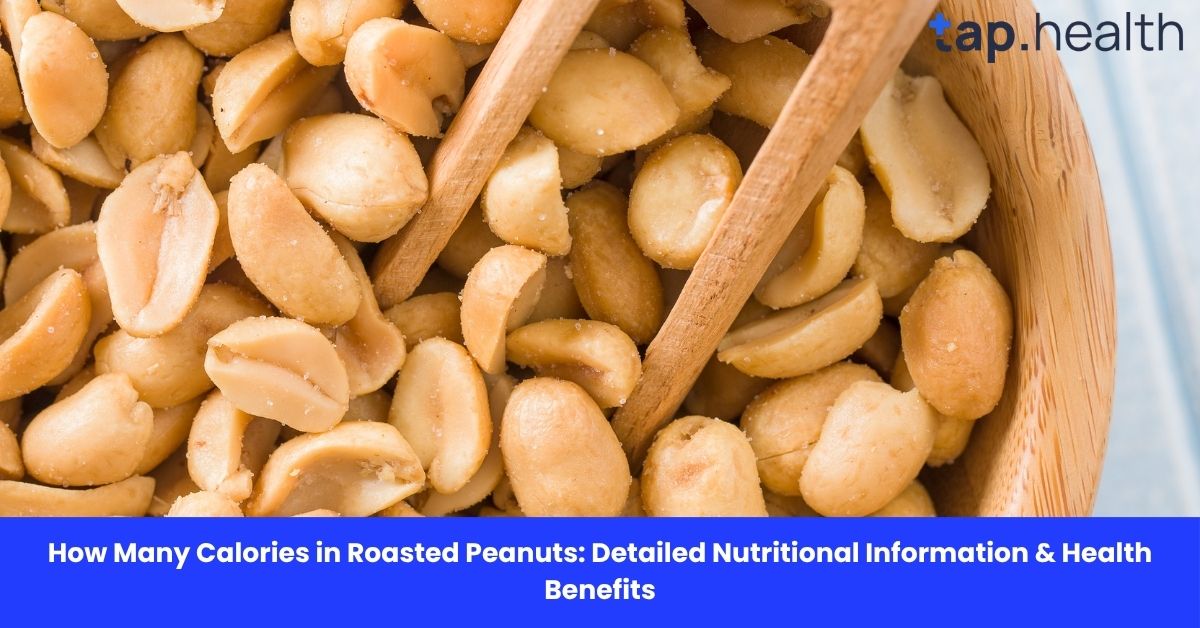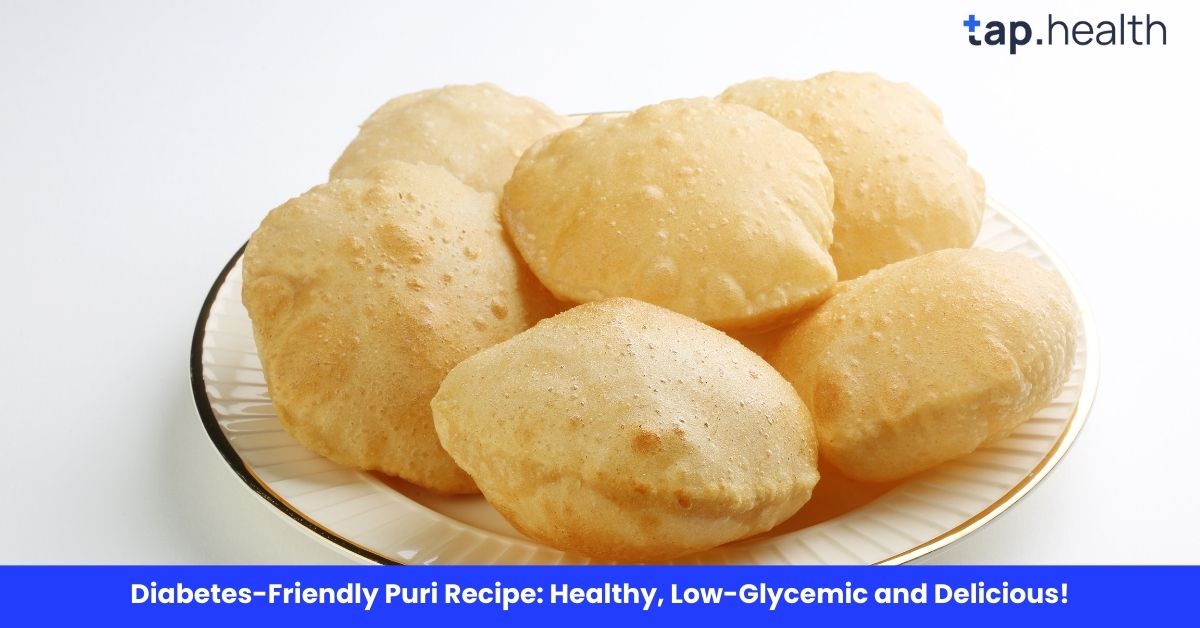Peanuts are one of the most popular snacks around the world, often enjoyed roasted as a healthy snack or added to dishes for extra crunch and flavor. But if you’re watching your calorie intake or trying to maintain a balanced diet, you might wonder, how many calories are in roasted peanuts?
In this blog post, we’ll answer that question, break down the nutritional value of roasted peanuts, and explore the health benefits they offer. Whether you’re snacking on them for energy or using them in recipes, this guide will provide all the information you need to make informed decisions about your peanut consumption.
What Are Roasted Peanuts?
Roasted peanuts are simply raw peanuts that have been cooked by dry-roasting or oil-roasting to enhance their flavor and texture. The roasting process gives peanuts a crunchy texture and a deeper, nuttier taste compared to their raw counterparts.
There are two main types of roasted peanuts:
- Dry-roasted peanuts: Roasted without oil, making them lower in fat and calories.
- Oil-roasted peanuts: Roasted with oil, which increases the calorie content.
Roasted peanuts are often salted or flavored with various seasonings to enhance their taste, but these add-ons can also affect their nutritional profile, especially the sodium content.
How Many Calories are in Roasted Peanuts?
The calorie content of roasted peanuts depends on the serving size and whether they are dry-roasted or oil-roasted. Here’s a general breakdown of calories:
- 1 ounce (28 grams) of dry-roasted peanuts: Around 160-170 calories
- 1 ounce (28 grams) of oil-roasted peanuts: Around 180-200 calories
On average, 1 ounce (about 28 grams) of roasted peanuts is equivalent to roughly 1/4 cup of peanuts. This serving size provides a good amount of energy and nutrients.
Calories in Peanuts (Per 100 grams)
- Dry-roasted peanuts: Approximately 570-600 calories
- Oil-roasted peanuts: Approximately 600-650 calories
If you’re watching your calorie intake, it’s important to stick to proper portion sizes, especially if you’re opting for oil-roasted peanuts, which tend to be more calorie-dense.
What Are the Nutritional Benefits of Roasted Peanuts?
While roasted peanuts are relatively high in calories, they are also packed with essential nutrients that can benefit your health. Here’s a detailed look at the key nutrients found in roasted peanuts:
1. Protein
Roasted peanuts are an excellent source of plant-based protein. One ounce (28 grams) of dry-roasted peanuts contains about 7-8 grams of protein, making them a great snack for vegetarians, vegans, or anyone looking to increase their protein intake.
Protein is essential for muscle repair, immune function, and the production of enzymes and hormones.
2. Healthy Fats
Peanuts are rich in healthy fats, particularly monounsaturated fats, which are beneficial for heart health. A serving of roasted peanuts contains around 14 grams of fat, with about 7-8 grams coming from healthy unsaturated fats.
These healthy fats can help reduce bad cholesterol levels and lower the risk of heart disease when consumed in moderation.
3. Carbohydrates
Roasted peanuts are low in carbohydrates. One ounce contains around 6 grams of carbohydrates, including about 2 grams of fiber. The fiber content is beneficial for digestion, helps maintain healthy blood sugar levels, and keeps you feeling full longer.
4. Vitamins and Minerals
Roasted peanuts provide a good source of several important vitamins and minerals:
- Vitamin E: A powerful antioxidant that helps protect cells from damage.
- B-Vitamins: Roasted peanuts are rich in niacin (B3), which helps convert food into energy.
- Magnesium: Essential for muscle and nerve function, as well as bone health.
- Phosphorus: Supports bone health and energy production.
- Potassium: Helps regulate fluid balance and blood pressure.
5. Antioxidants
Peanuts contain antioxidants like resveratrol, which help fight free radicals in the body, promoting overall health and reducing the risk of chronic diseases.
Are Roasted Peanuts Healthy?
Yes, roasted peanuts can be considered a healthy snack when consumed in moderation. Here’s why:
Benefits of Roasted Peanuts:
- Rich in Protein: Peanuts provide plant-based protein, making them a great option for muscle repair and growth.
- Heart-Healthy Fats: The monounsaturated and polyunsaturated fats in peanuts support heart health by lowering bad cholesterol levels.
- Fiber-Rich: With a decent amount of fiber, peanuts can aid digestion and keep you feeling full, helping with weight management.
- Packed with Nutrients: Roasted peanuts are rich in vitamins and minerals like vitamin E, magnesium, and potassium, which are important for overall health.
Potential Drawbacks:
- High in Calories: Peanuts are calorie-dense, so eating too many at once can contribute to excess calorie intake. It’s important to watch portion sizes, especially if you’re trying to manage your weight.
- Allergy Concerns: Peanuts are a common allergen, so they should be avoided by individuals with peanut allergies.
- Added Salt and Oil: Some commercially roasted peanuts are salted or fried in oil, which can increase sodium and unhealthy fat intake.
How to Make Roasted Peanuts a Part of Your Healthy Diet?
Roasted peanuts can be a nutritious and satisfying snack if you know how to incorporate them into your diet. Here are some tips for enjoying them in a healthy way:
1. Watch Portion Sizes
Since roasted peanuts are calorie-dense, it’s easy to overeat them. Stick to a portion of about 1 ounce (28 grams), which is roughly a small handful. This will provide you with a good balance of calories, protein, and healthy fats.
2. Choose Dry-Roasted Peanuts
If you’re trying to minimize your calorie intake, opt for dry-roasted peanuts rather than oil-roasted ones. Dry roasting without oil helps reduce the fat and calorie content, making them a lighter snack.
3. Avoid Salted Peanuts
Excessive salt can lead to high blood pressure and other health problems. Look for unsalted roasted peanuts or buy plain peanuts and roast them at home without adding salt.
4. Pair with Fruits or Veggies
Roasted peanuts can be paired with fruits like apple slices or bananas for a balanced snack. You can also add them to a salad for extra crunch, or mix them with vegetables for a fiber-packed, nutrient-dense snack.
5. Add to Smoothies or Granola
Roasted peanuts can also be added to smoothies or homemade granola for a nutrient boost. Blending them into smoothies with yogurt, fruits, and other healthy ingredients is a great way to incorporate them into your diet.
Are Roasted Peanuts Good for Weight Loss?
Roasted peanuts can be a good option for weight loss if consumed in moderation. Despite being high in calories, peanuts can actually help with weight management because they are rich in protein and fiber, both of which promote satiety and prevent overeating.
However, because they are calorie-dense, portion control is essential. Stick to small servings, and balance them with other low-calorie, nutrient-dense foods like fruits and vegetables.
How Many Calories Are in Different Types of Roasted Peanuts?
1. Dry-Roasted Peanuts
Dry-roasted peanuts are roasted without oil, which makes them lower in fat and calories. As a result, they typically contain fewer calories than oil-roasted peanuts.
- 1 ounce (28 grams): Approximately 160-170 calories
2. Oil-Roasted Peanuts
Oil-roasted peanuts are roasted in oil, which increases their fat content and overall calorie count. While they can be delicious, they are higher in calories compared to dry-roasted peanuts.
- 1 ounce (28 grams): Approximately 180-200 calories
Real-Life Scenario
Imagine a fitness enthusiast trying to maintain calorie control while including healthy snacks in their diet. Replacing processed chips with a handful of roasted peanuts can provide sustained energy, improve satiety, and offer valuable nutrients—without excessive calories when consumed in moderation.
Expert Contribution
According to nutrition experts, roasted peanuts offer a great combination of monounsaturated and polyunsaturated fats that support heart health. Dietitians also emphasize that they can be part of weight management plans if portion sizes are kept in check, typically around 30 grams (a small handful).
Recommendations Grounded in Proven Research and Facts
- Moderation is key: Stick to a serving of about 1 ounce (28–30 grams).
- Opt for unsalted or lightly salted versions to reduce sodium intake.
- Combine with fruits or vegetables for a nutrient-balanced snack.
- Scientific studies show that regular nut consumption may reduce the risk of cardiovascular diseases and type 2 diabetes.
FAQs: How Many Calories in Roasted Peanuts?
1. How many calories are in 1 ounce of roasted peanuts?
One ounce (28 grams) of roasted peanuts contains about 160-200 calories, depending on whether they are dry-roasted or oil-roasted.
2. Are roasted peanuts good for weight loss?
Roasted peanuts can be part of a weight-loss diet in moderation. They are high in protein and fiber, which can help you feel full and satisfied, but portion control is important due to their high-calorie content.
3. How many calories are in dry-roasted peanuts?
Dry-roasted peanuts have around 160-170 calories per ounce (28 grams).
4. Can I eat roasted peanuts if I’m on a low-carb diet?
Roasted peanuts are relatively low in carbs, with about 6 grams of carbs per ounce. They can be eaten in moderation on a low-carb diet, but you should keep portion sizes in check.
5. Are roasted peanuts high in protein?
Yes, roasted peanuts are a good source of protein, with approximately 7-8 grams of protein per ounce (28 grams).
6. How many calories are in salted roasted peanuts?
Salted roasted peanuts contain the same number of calories as regular roasted peanuts, but the added salt increases sodium intake. One ounce of salted roasted peanuts contains around 160-200 calories, depending on whether they are dry-roasted or oil-roasted.
Conclusion
Roasted peanuts are a delicious, nutrient-rich snack that offers a good source of protein, healthy fats, and fiber. However, due to their calorie density, it’s important to enjoy them in moderation. Opt for dry-roasted peanuts without added salt and pair them with other healthy foods to create a balanced, satisfying snack. By keeping portion sizes in check, roasted peanuts can be a healthy and enjoyable part of your diet.



